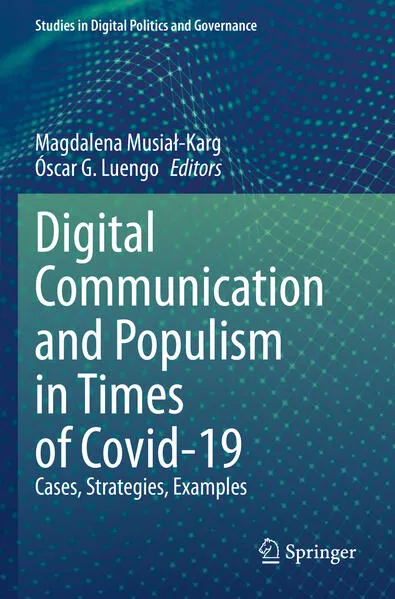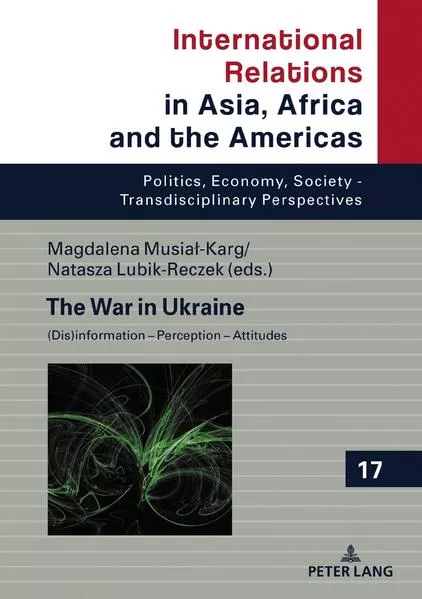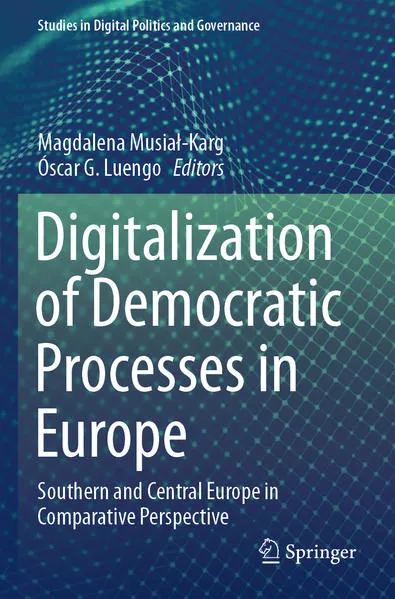
- Publikationen ca: 5
- Fragen & Antworten
Magdalena Musiał-Karg
Magdalena Musiał-Karg is an associate professor at the Department of Political Systems, Faculty of Political Science and Journalism, Adam Mickiewicz University in Poznań, Poland. Her main research interests focus on direct democracy and the impact of modern technologies (ICT) on democratic systems, mainly on the electoral process (e-voting). She has also conducted research on the role of women in public space. M. Musiał-Karg is the author of numerous publications devoted to electronic participation, alternative voting methods, and direct democracy.She was a holder of a PhD scholarship under the "Europa Fellows II" Programme financed by the German Federal Ministry of Education and Research and under the Osteuropa Programme financed by KAAD. In 2014, she was awarded with a 3-year stipend for young distinguished scientists funded by the Polish Minister of Science and Higher Education.She is the Vice-Dean for Research and Scientific Cooperation at the Faculty of Political Science and Journalism, Adam Mickiewicz University in Poznań, and a former Vice-Dean for Research and Development (2016-2020). She is also the Vice-President of the Polish Political Science Association, member of the Political Sciences Committee of the Polish Academy of Sciences (2020-2023), and the President of the Center for European Research and Education.
Óscar G. Luengo is a professor at the Department of Political Science and Public Administration, at the Faculty of Political Science and Sociology at the University of Granada, Spain. He is the Vice-Chair of the Research Committee on Political Communication (RC22) of the International Political Science Association (IPSA), Director of the Ibero American School of Local Government (Ibero American Municipalists Union - UIM) and former Vice-dean for International Relations (2008-2012) at the Faculty of Political Science and Sociology. He was a distinguished visiting scholar at Florida International University, as well as a research fellow at the University of Machala (Ecuador), Amsterdam School of Communication Research (The Netherlands), University of Mainz (Germany), European University Institute (Italy) and University Tecnológica de Monterrey (México). Prof. Luengo was a visiting professor at many foreign universities: the University of California, Berkeley (US), Ritsumeikan University (Japan), Florida International University (USA), University of Saint Louis (USA), University of Anadolu (Turkey), University of Plzen (Czech Republic), University of Buenos Aires (Argentina), and Adam Mickiewicz University in Poznań (Poland). His main research areas focus on political communication, campaigns, and electoral analysis. Further, he is researching new media impact on civic participation and democracy.
Digital Communication and Populism in Times of Covid-19
This book examines different dimensions of digital communication and populism in times of the COVID-19 pandemic. While doing so, it discusses views, opinions, and research results regarding the conditions, experiences, constraints, benefits, and challenges related to the topic - not only using theoretical and methodological approaches but also practical perspectives.
Digital Communication and Populism in Times of Covid-19
This book examines different dimensions of digital communication and populism in times of the COVID-19 pandemic. While doing so, it discusses views, opinions, and research results regarding the conditions, experiences, constraints, benefits, and challenges related to the topic - not only using theoretical and methodological approaches but also practical perspectives.
Digital Communication and Populism in Times of Covid-19
This book examines different dimensions of digital communication and populism in times of the COVID-19 pandemic. While doing so, it discusses views, opinions, and research results regarding the conditions, experiences, constraints, benefits, and challenges related to the topic - not only using theoretical and methodological approaches but also practical perspectives.
The War in Ukraine
The book is a collection of studies on the war in Ukraine. The considerations focus on different contexts of the first phase of the armed conflict. The authors try to answer questions about the motives and results of Russian disinformation and blaming Ukraine, the US and NATO for the invasion, as well as of the position of third countries towards the Russian aggression.
Digitalization of Democratic Processes in Europe
This book explores the digital transformations of democracy and democratic societies. It examines the various challenges posed by these transformations in the context of political practice and to theoreticians of democracy and political communication.




